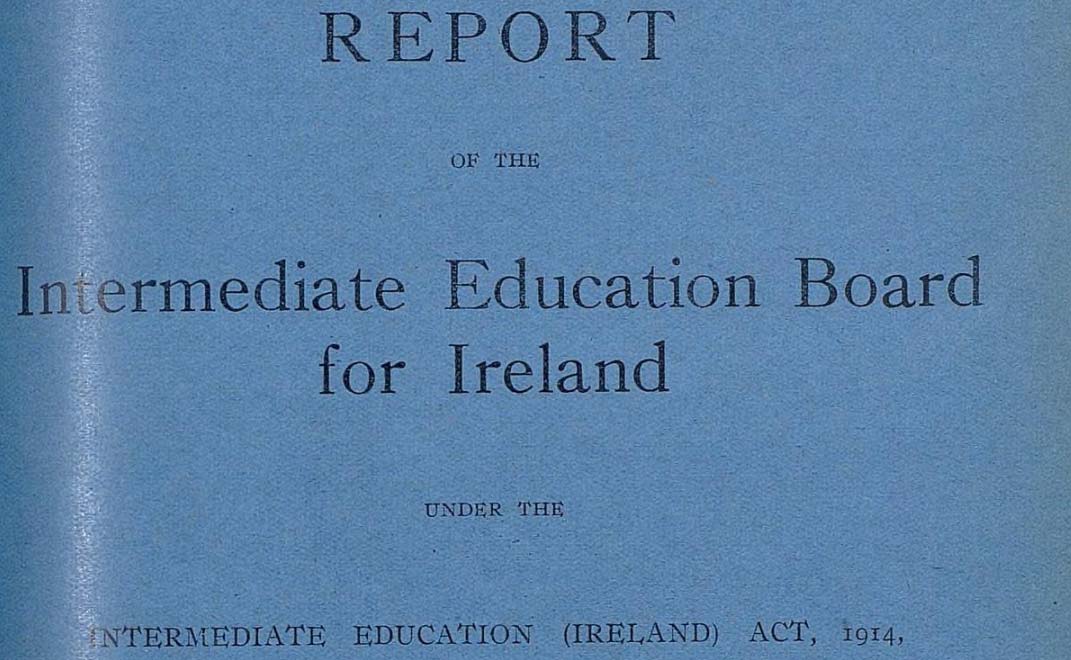Report of the Intermediate Education Board reveals spike in numbers sitting exams
Dublin, 30 December 1922 – The Commissioners of Intermediate Education in Ireland have just published their report for 1921.
Presented to the now departed Lord Lieutenant, Edmund Talbot, in early October, this is the commission’s last report before the Irish Free State came into existence.
For that reason, the report includes a brief survey of the board’s history since its foundation in 1879. The Intermediate system was designed to provide an advance towards higher education for those who might not otherwise have moved beyond national school.
The Intermediate Education (Ireland) Act, 1878, set out to promote secondary secular education in three key ways: by introducing a system of public examinations; by awarding money prizes to successful students in these examinations; and by paying secondary schools dependent on the results of the examinations.
The schools themselves were independent of the control of the state and the legislation provided for the appointment of seven commissioners to administer the system.
When the first intermediate examinations were held under the auspices of the Board in 1879, a total of 3,954 students sat – 3,218 boys and 736 girls – and of these 1,850 boys and 482 girls passed. By 1921, the numbers examined had risen to 7,299 boys and 5,120 girls, of whom 3,502 boys and 2,405 girls were successful.
The Intermediate Education system has been the subject of a number of legislative overhauls over the years. The Board of Commissioners makes clear in its latest report that progress is only possible if it continues in the same vein. In short, this means the provision of sufficient funds for secondary education, proper salaries for teachers, along with increments and pensions, and the abolition of fees dependent on the exam results of individual students.
Under the Government of Ireland Act, 1920, the Board was to be divided into an Intermediate Education Board for Southern Ireland and an Intermediate Education Board for Northern Ireland. However, an act by the Northern Ireland Parliament has since decided to do away with such a body and vest its powers in the Northern Ireland Minister of Education.
[Editor's note: This is an article from Century Ireland, a fortnightly online newspaper, written from the perspective of a journalist 100 years ago, based on news reports of the time.]





















